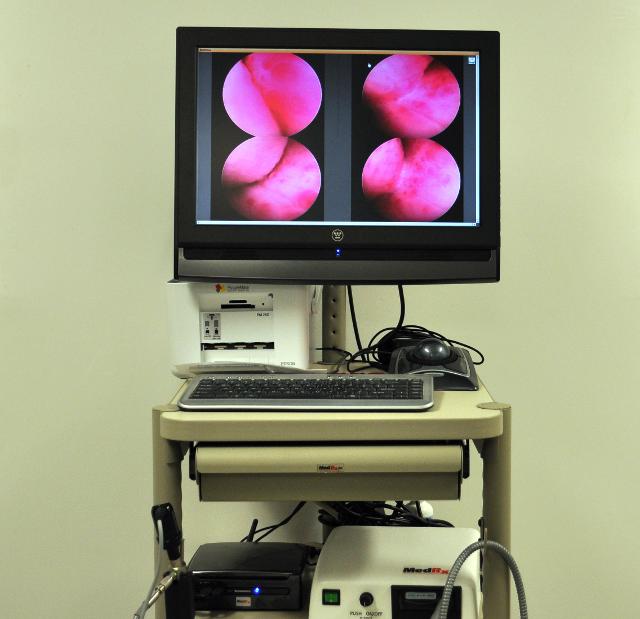|
Ear Infections...How can we cure them?
Have you seen your pet shaking their head or scratching at their ear lately? Is there as strong odor coming from their ear? Do you see dark goo that just won't go away with repeat cleaning session? It's quite possible that they could have an ear infection. This disease is quite common in dogs and sometimes seen in cats, but can cause further complications if left untreated.
Ear infections are usually caused by bacteria or yeast cells. These cells can be seen under the microscope by simply taking a swab from each ear - a process that takes usually less than ten minutes.
Treatment usually involves either cleaners or an antibiotic ointment applied to the canal of the infected ear. Our doctors are very familiar with
 |
Peticote Veterinary Clinic uses a digital otoscope to examine pets ears in the exam room to increase the chances of finding ear infections. This enables clients to view the internal ears as well. If an infection is suspected the ears are swabbed and a cytology slide made to determine the type of bacteria or fungus that might be causing the infection. Very few veterinary practices are equipped with a digital otocscope.
|
|
Treatment Program:
- Flush and clean ears while the patient is sedated. This enables us to clean the horizontal canal and even clean behind the tympanic membrane (ear drum).
- Once the ears are cleaned, the ears are medicated to maximize the treatment potential. Antibiotics are selected to match the organisms infecting the ear to get the best possible results.
- Antibiotics and rinses are chosen to maximize the effectiveness of the treatment. We use the latest antibiotic treatments available to reduce the infections as soon as possible.
- Ears are rechecked in 2 to 3 weeks to monitor progress until ears are normal.
- Some ears require being flushed two times. Many ear infections are related to allergies. Allergy testing is offered and these allergies can be treated to help relieve the ear infections. Some of these dogs are also hypothyroid and can be tested and treated to help cure this condition.
Feel free to call Dr. Pettit at the office if you have any questions! (609) 859-8800.
|
| 






